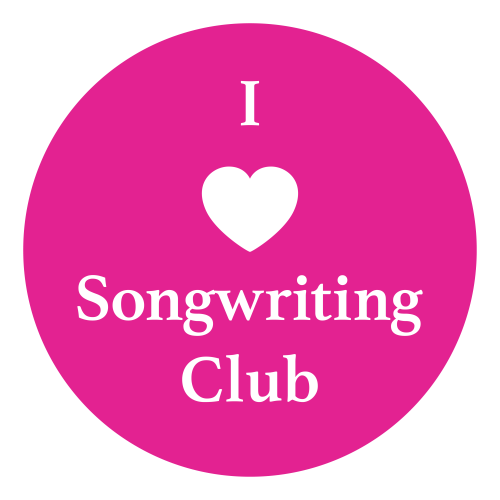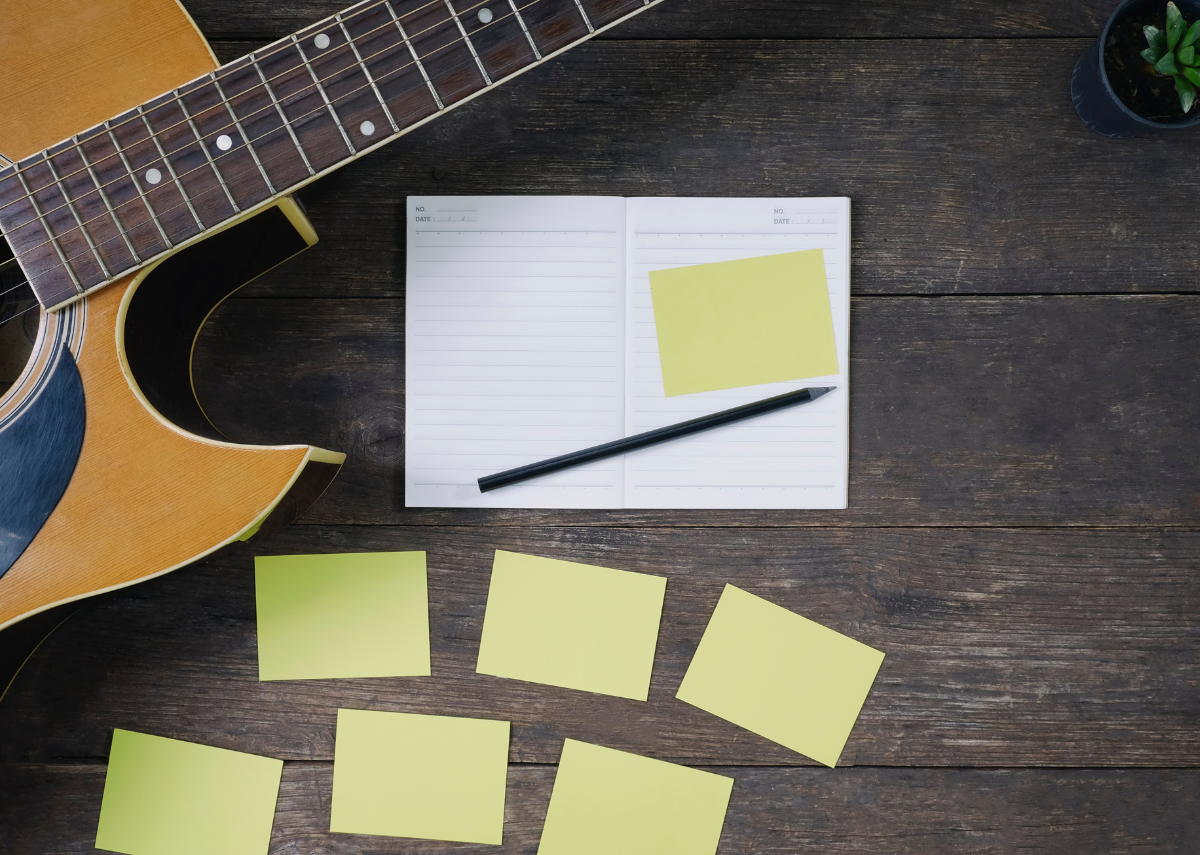How Do I Start Writing Songs? 5 Tips for Songwriting for Beginners
by Francesca de Valence
You have probably heard this question frequently asked of songwriters – “do you start writing with the words or music first?” Unfortunately, there is no one answer, as there isn’t one way to write a song.
Each songwriter approaches songwriting differently, and possibly even a different way each time they write. Whereas one time they may start with a lyric idea or a melody, another time they might be drawn to a chord progression or a beat. There are no rules around how to write songs.
So, when it comes to learning how to start songwriting, where do students start?
5 Tips for Songwriting for Beginners:
You don’t need to be at any place to start writing. You start with where you’re at and develop your skills from there.
Anyone can learn to write songs and develop their songwriting skills. It is a skill that can be developed like any other. You will inherently draw on any experience and exposure to music when you write songs.
If you have any experience playing instruments or singing, you may draw on it. You may have grown up on a healthy diet of 90’s pop music, so what you create will likely be informed by this. If you’ve been exposed to music using a variety of scales, modes and ragas (which is possible if you’ve come from a non-western culture), those sounds will likely inform you.
The more you listen to different music, this will continue to give you options to draw from, as well as the more you create, the more you develop your writing skills.
Know the basics of what makes a song
At its foundation, a song can be communicated by lyrics and melody alone. ‘Happy Birthday’ is often sung without an instrument, with words everyone knows. That is the essence of a song (albeit a very simple one).
Usually, when we listen to songs, there is at least a chordal instrument that accompanies the melody and lyrics. However, a piece can exist without the chords. In fact, the melody that the lyrics are sung on can inform the chords. So by writing a melody, you’re half the way there with the chords.
Another important element that makes songwriting more accessible is repetition. ‘Happy Birthday’ is very repetitive in terms of rhythm and melody. Sing it through again and listen for the repetition.
Start writing with a repetitive melody and lyrical idea; this can be a really accessible way into songwriting for beginners.
Bring a sense of play and exploration to what you’re about to create
When you create, you’re making something from nothing. It’s quite a magical thing! In order to be able to receive ideas to create with, it can be very helpful to cultivate a sense of play and exploration.
If you hold expectations of what the song should sound like or how good it should be before you’ve even created it, you may quickly stop the flow of ideas that you’ll be receiving or feel like there are no ideas there.
So keep a sense of wonderment for what you might be able to create – and no expectation!
Start writing!
Remember, there is just no one way to write a song, so try these tips to help you get started:
Start with Melody:
- Play with your singing voice to develop a melody that goes over 4 beats Repeat that idea over the next 4 beats
- Slightly change it for the next 4 beats, and see what feels natural to do on the 4th lot of 4 beat
- Practice that a few times til it starts to feel like it flows
- Use that as either a verse melody or chorus melody
You might find that you’ll forget what you created, so we recommend using a voice memo app on your phone to capture those ideas as you go.
Start with Lyrics:
Rather than starting with a blank page of ideas that can cause creative blocks for songwriters, begin with an exercise that brings lyrical abundance to your page.
Choose an object that you can see. Then, put a timer on for 3 minutes, and write non-stop about that object. You may write whole sentences or single words. It may go completely off track; let it do that, but keep writing until your timer goes off.
Look at what you wrote, circle what interests you, and start pulling these words/phrases together to create a lyric or poem to which you can put a melody afterwards.
Start with Chords:
If you play a chordal instrument (like piano, guitar or ukulele), find between 2-4 chords that work together in a sequence. Repeat those chords until you can play them at a steady tempo. Record that idea so you don’t forget it.
Create a contrasting chord progression. You might change the order of the same chords, add in new chords, or even leave out some of those chords and play others for longer than before. Repeat those chords repeatedly until you can play them at a steady tempo. Record that idea so you don’t forget it.
Practice those two chord progressions so you can play them back to back. Then use those two progressions to inform a melody idea to which you can later write lyrics.
Keep going with that idea until you have a first draft
One of the most common things that beginner songwriters do is abandon an idea prematurely, judging it as not being good enough and doing that way too soon. Instead, keep going and finish the first draft of your song.
Instead of giving up on an idea and then moving to another one, stay with the initial concept and see where you can take it. Always finish your first draft! Recording it from beginning to end on your voice memo app is a simple way to capture the entire idea so you can listen back to it.
Take a listen back to it a day or two later. What changes would you like to make to it? If you’re unsure, getting feedback on your songs can be really helpful.
In summary, songwriting is such an accessible creative skill to develop. If you believe that you have to have a natural talent to write songs, then you’ll be missing out on all the joy and magic of songwriting.
Want some guidance in writing songs?
At I Heart Songwriting Club, we highly recommend developing your songwriting skills by writing songs each week and getting feedback as you go along your journey.
Our beginner songwriting courses, run online a few times a year over 10 weeks, allow our students to focus on specific songwriting elements via writing exercises, pre-recorded video lessons, songwriting prompts, and live-time professional mentorship from our songwriting faculty.
If you would like our support to help you write your first or next 10 songs, join our next songwriting course here.




